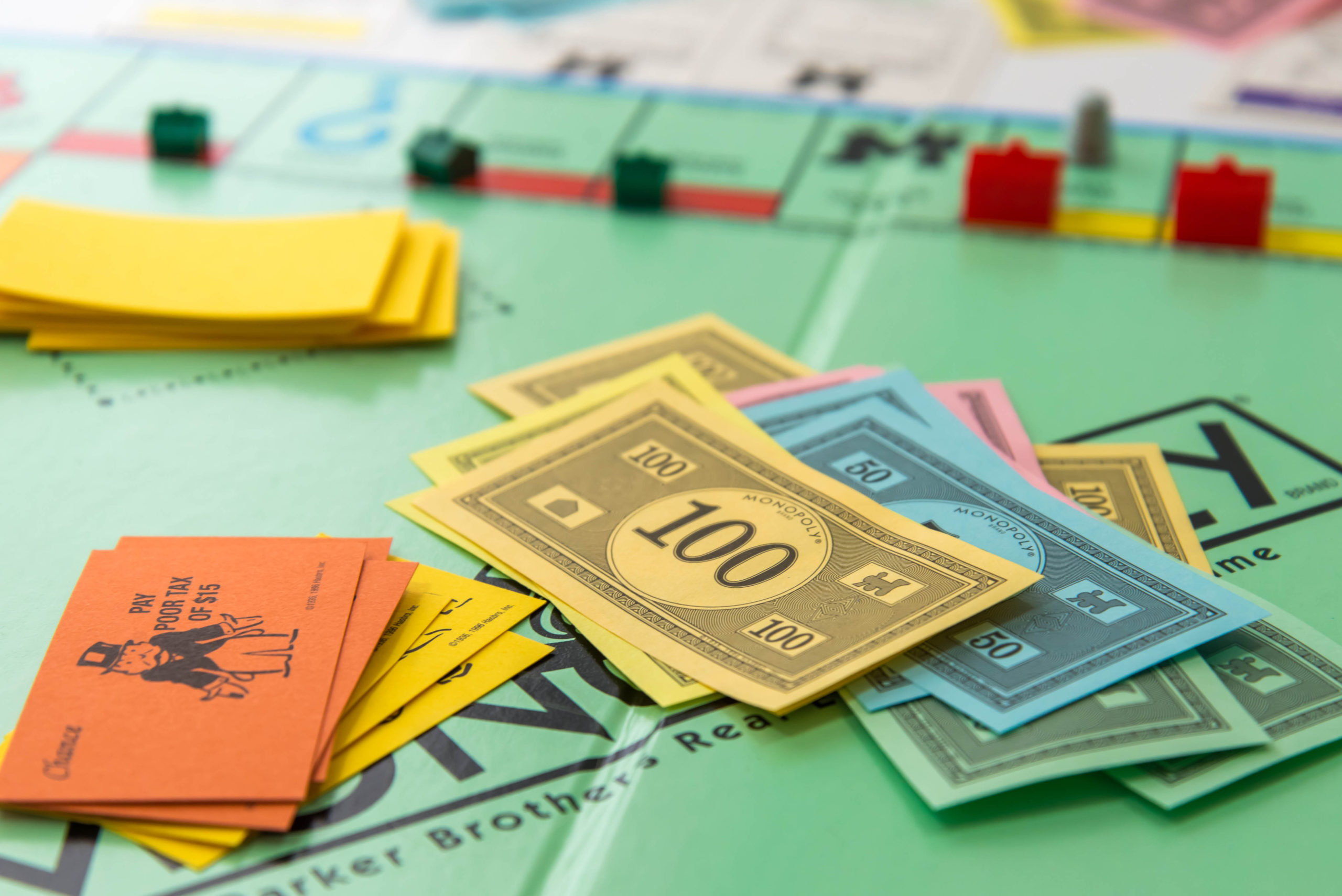
The Reason For Our Chocolate Problem
February 15, 2015
How Much Do Average People Agree With Economists?
February 17, 2015In France, you could find real money in your monopoly game.
Commemorating its 80 anniversary, manufacturers of the French version of the game are putting euros in 80 sets. The one set in which real money replaced every bill will be worth €23,000, another 10 boxes, €300, and the remaining 69 boxes, €169. A top secret operation in a Northeastern French town, packaging the real money sets involved being sure they would be identical to the other 30,000 that will be released. One company representative said there would be a slight difference in weight that only a precision scale could pick up.
Where are we going? To why Monopoly is more than a game.
Monopoly Messages
The First Message
The version of Monopoly that Parker Brothers introduced in 1935 was based on a game that people had been playing for more than 30 years. Called the Landlord’s Game, this original version was supposed to convey the immorality of people like John D. Rockefeller and Andrew Carnegie. As the game unfolded, depending on which of its two rule sets you used, you were supposed to experience the evils of monopoly or the benefits of sharing wealth. The game’s developer, Elizabeth Magie Philips, wanted players to realize the inequities of capitalism. (Do note that Parker Brothers purchased the rights to the game from someone who stole the idea and Ms. Philips never received her due.)
A Second Message
Agreeing that Monopoly conveyed a negative picture of capitalism, a group of economists at the University of Chicago said the reason was the rules. Instead, the game needed to portray a market economy more accurately. It needed more competition, more potential for innovation and a more realistic monetary policy framework. Joining the players one evening, Milton Friedman autographed a game board, adding “down with” above the word “Monopoly.”
So, we have one person saying capitalism is flawed and others telling us it is the game that has the problem.
Our Bottom Line: Monopoly Tradeoffs
Knowing that the game of Monopoly is based on the evils of John D. Rockefeller, Andrew Carnegie, J.P. Morgan, and others like them, instead perhaps we should focus on the tradeoffs. Those gentlemen and others like them catapulted U.S. economic growth with the capital and financial infrastructure that they created.
![econlifelogotrademarkedwebsitelogo[1]](/wp-content/uploads/2024/05/econlifelogotrademarkedwebsitelogo1.png#100878)



